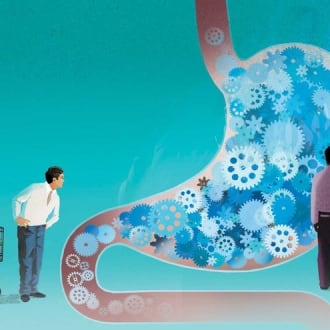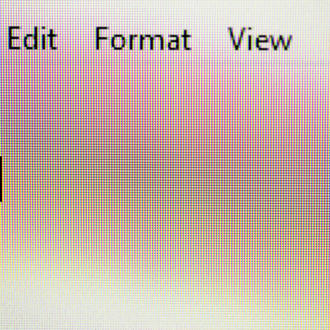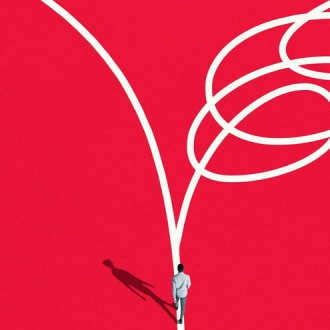The Best of Scientific American
20+ most popular Scientific American articles, as voted by our community.
Trending
These are currently making the rounds on Refind.
People with ‘Havana Syndrome’ Show No Brain Damage or Medical Illness
The largest and most comprehensive studies of ‘Havana Syndrome’ point to stress or group psychology as likely explanations for most “anomalous health incidents”
Sora Is OpenAI’s New Text-to-Video Generator. Here’s What You Need to Know
A machine-learning tool that transforms text prompts into detailed video has generated excitement—and skepticism
People with Myalgic Encephalomyelitis/Chronic Fatigue Syndrome May Have an "Exhausted" Immune System
A long-awaited study of people with ME/CFS revealed differences in their immune and nervous system. The findings may offer clues about long COVID
Do Stars Outnumber the Sands of Earth’s Beaches?
Figuring out whether there are more stars in the universe than sand grains on Earth’s seashores requires math—and imagination
AI Chatbot Brains Are Going Inside Robot Bodies. What Could Possibly Go Wrong?
The effort to give robots AI brains is revealing big practical challenges—and bigger ethical concerns
Scientific American on Aging
How Old Can Humans Get?
An expert on aging thinks humans could live to be 1,000 years old—with a few tweaks to our genetic “software”
Scientific American on Brain
Why Your Brain Needs Exercise
The evolutionary history of humans explains why physical activity is important for brain health
«They found an additive effect: exercise alone was good for the hippocampus, but combining physical activity with cognitive demands in a stimulating environment was even better, leading to even more new neurons»
How the Brain Creates Your Physical Sense of Self
New insight comes from zapping a region, known as the anterior precuneus, that causes people to feel dissociated from their body
«is a narrative self, based on memory, and the other is the bodily self,” she says. In other words, “me” and “I” are located in separate networks within the brain»
Scientific American on Gaslighting
How Gaslighting Manipulates Reality
Gaslighting isn’t just between people in a relationship—it involves social power, too
George Floyd's Autopsy and the Structural Gaslighting of America
The weaponization of medical language emboldened white supremacy with the authority of the white coat. How will we stop it from happening again?
Scientific American on Microbiome
Some Sugar Substitutes Affect Blood Glucose and Gut Bacteria
In a new study, participants who consumed sugar substitutes showed an altered microbiome and spikes in blood glucose
Ancient “Chewing Gum” Reveals a 5,700-Year-Old Microbiome
Archaeologists reconstructed a Neolithic woman’s complete genome and oral microbiome from a piece of birch tar she chewed
Scientific American on Narcissism
What Is Narcissism? Science Confronts a Widely Misunderstood Phenomenon
Researchers debate whether grandiosity always masks vulnerability
The Science of Spiritual Narcissism
Self-enhancement through spiritual practices can fool some of us into thinking we’re evolving and growing when all we’re growing is our ego
Scientific American on Physics
This Twist on Schrödinger’s Cat Paradox Has Major Implications for Quantum Theory
A laboratory demonstration of the classic “Wigner’s friend” thought experiment could overturn cherished assumptions about reality
Quantum Theory’s ‘Measurement Problem’ May Be a Poison Pill for Objective Reality
Solving a notorious quantum quandary could require abandoning some of science’s most cherished assumptions about the physical world
Scientific American on Quantum Physics
Quantum Physics May Be Even Spookier Than You Think
A new experiment hints at surprising hidden mechanics of quantum superpositions
How Does the Quantum World Cross Over?
The universe according to quantum mechanics is strange and probabilistic, but our everyday reality seems nailed down. New experiments aim to probe where—and why—one realm passes into the other
Scientific American on Science
New Human Metabolism Research Upends Conventional Wisdom about How We Burn Calories
Metabolism studies reveal surprising insights into how we burn calories—and how cooperative food production helped Homo sapiens flourish
Why Dying People Often Experience a Burst of Lucidity
New research shows surprising activity levels in dying brains and may help explain the sudden clarity many people with dementia experience near death
Scientific American on Space
Is Time Travel Possible?
The laws of physics allow time travel. So why haven’t people become chronological hoppers?
«It seems there is a chronology protection agency, which prevents the appearance of closed timelike curves and so makes the universe safe for historians,” Hawking wrote in a 1992 paper in Physical Review D.»
Traveling Backward in Time Is Kind of Hard
We already have the means to skip ahead in time, but going backward is a different wormhole
Popular
These are some all-time favorites with Refind users.
We Asked GPT-3 to Write an Academic Paper about Itself. Then We Tried to Get it Published
An artificially intelligent first author presents many ethical questions—and could upend the publishing process
Why You Can’t Remember Being Born: A Look at ‘Infantile Amnesia’
Infants can form memories, just not the kind that recalls specific experiences
Personality Can Change from One Hour to the Next
Studies show that people may experience enormous variability in personality traits throughout the course of the day
We Learn Faster When We Aren’t Told What Choices to Make
The way we decide may even give insight into delusional thinking
«Choice tips the balance of learning: for the same action and outcome, the brain learns differently and more quickly from free choices than forced ones.»
What is Refind?
Every day Refind picks the most relevant links from around the web for you. is one of more than 10k sources we monitor.
How does Refind curate?
It’s a mix of human and algorithmic curation, following a number of steps:
- We monitor 10k+ sources and 1k+ thought leaders on hundreds of topics—publications, blogs, news sites, newsletters, Substack, Medium, Twitter, etc.
- In addition, our users save links from around the web using our Save buttons and our extensions.
- Our algorithm processes 100k+ new links every day and uses external signals to find the most relevant ones, focusing on timeless pieces.
- Our community of active users gets the most relevant links every day, tailored to their interests. They provide feedback via implicit and explicit signals: open, read, listen, share, mark as read, read later, «More/less like this», etc.
- Our algorithm uses these internal signals to refine the selection.
- In addition, we have expert curators who manually curate niche topics.
The result: lists of the best and most useful articles on hundreds of topics.
How does Refind detect «timeless» pieces?
We focus on pieces with long shelf-lives—not news. We determine «timelessness» via a number of metrics, for example, the consumption pattern of links over time.
How many sources does Refind monitor?
We monitor 10k+ content sources on hundreds of topics—publications, blogs, news sites, newsletters, Substack, Medium, Twitter, etc.
Can I submit a link?
Indirectly, by using Refind and saving links from outside (e.g., via our extensions).
How can I report a problem?
When you’re logged-in, you can flag any link via the «More» (...) menu. You can also report problems via email to hello@refind.com
Who uses Refind?
450k+ smart people start their day with Refind. To learn something new. To get inspired. To move forward. Our apps have a 4.9/5 rating.
Is Refind free?
Yes, it’s free!
How can I sign up?
Head over to our homepage and sign up by email or with your Twitter or Google account.


























